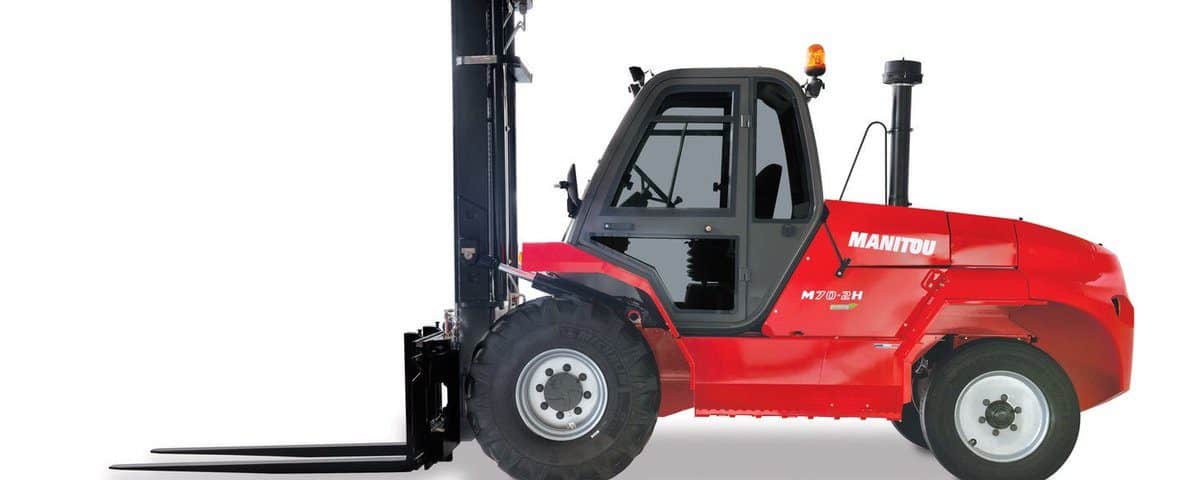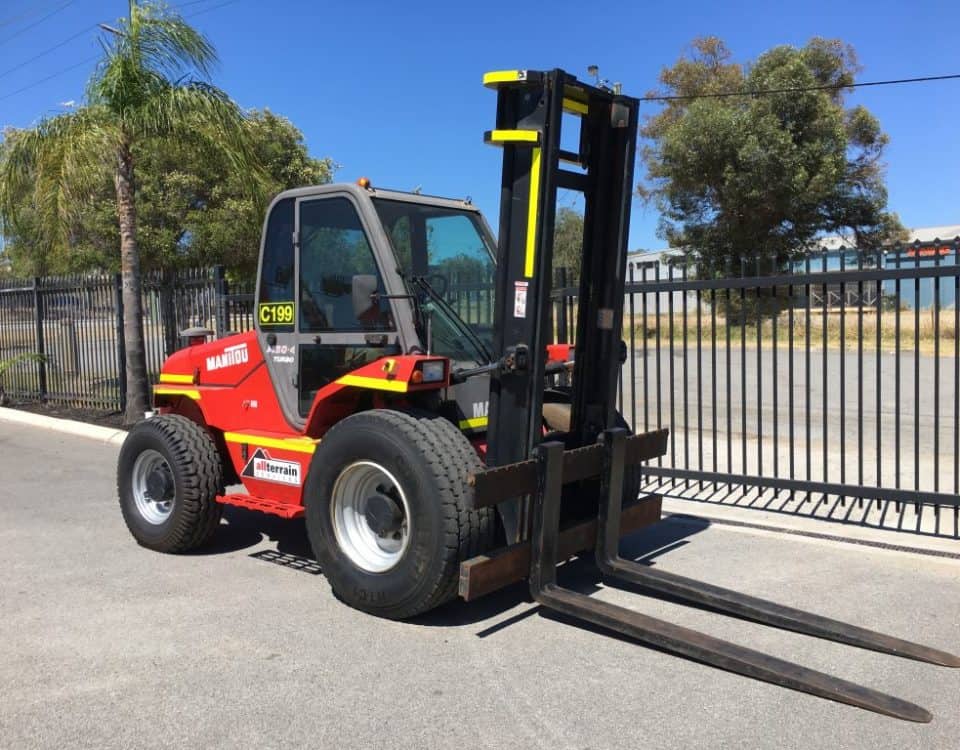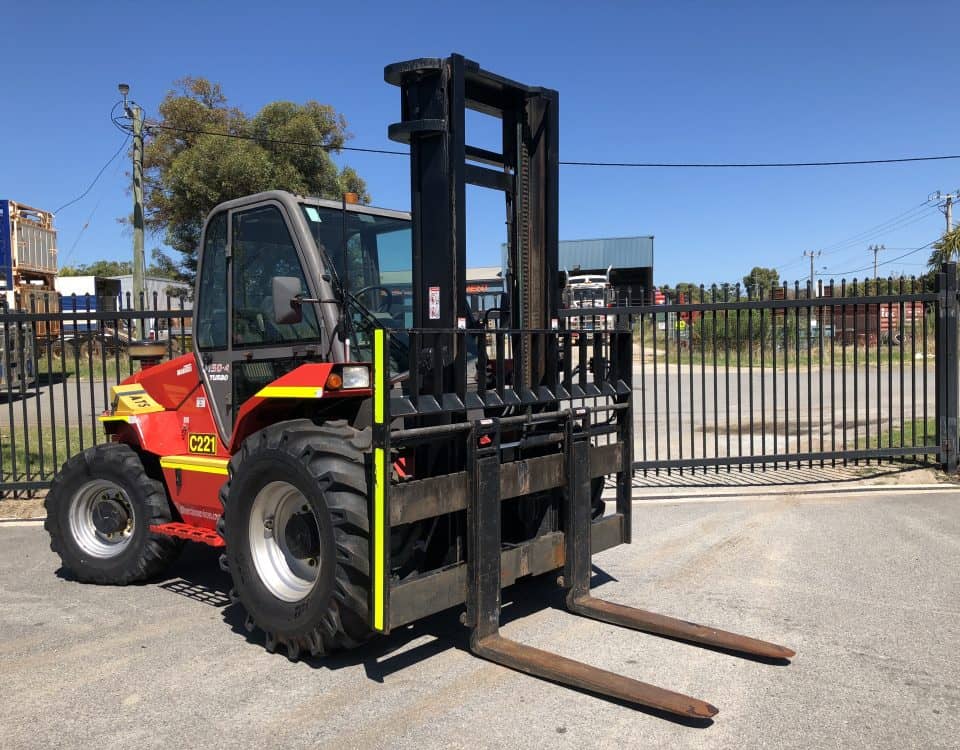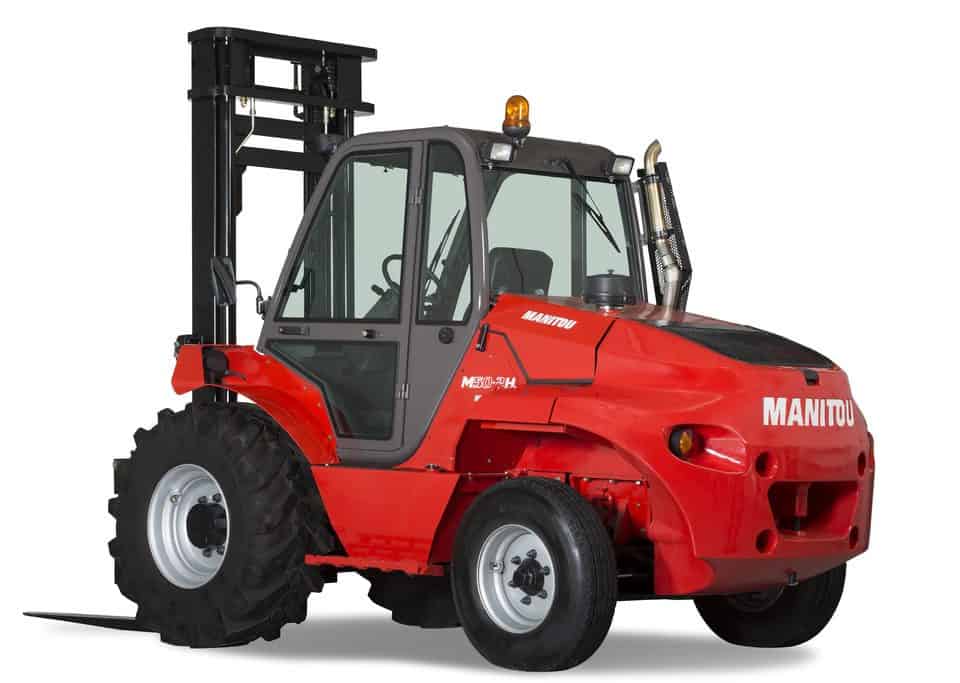Safety First: Forklift Operation in Perth

What is a Telescopic Crawler Crane
July 29, 2019
Wearing the appropriate safety gear when operating a forklift
October 18, 2019All terrain forklifts are some of the most versatile and valuable pieces of equipment on your worksite, but they can also be a significant hazard if operated unsafely.
Whether you’re operating your own forklift or you’ve opted for forklift hire in Perth, it is important to be aware of any forklift-specific safety procedures, as well as any personal protective equipment (PPE) recommended to you.
These safety measures are in place to not only reduce your risk of harm; they also work to protect other contractors, your worksite and any other innocent bystanders in the area.
Be Aware of Your Surroundings
Avoid These Forklift Safety Mistakes
Whether you have been operating forklifts for weeks, months or years, there is no time to get complacent when it comes to forklift safety.
While the below safety tips may seem like common sense, operators sometimes fall into the trap of not adhering to them, resulting in their safety being compromised.
Blind Spots
Blind spots are just as hazardous in an all terrain forklift as they are in a car or other vehicle. Before making any movement in a forklift, the operator should identify and eliminate any blind spots.
Speed Limits
The pressure to complete a job as fast as possible often leads forklift operators to rush their jobs, which may mean the operator far exceeds the safe speed limit for the site they’re working on.
Where possible, worksites, warehouses and other areas with high forklift use should have highly visible, enforceable speed limits to encourage operators to slow down and move their load safely.
Changes in Conditions
Operating an all terrain forklift safely involves driving to the conditions, which often includes operating on rough, steep or uneven surfaces.
A forklift driver needs to be aware of changes in conditions and prepared to alter their driving accordingly.
Be Visible with Lights
Forklifts often come kitted out with an array of lights, which are essential to the safe operation of the machine. Common lights include forklift headlights, tail or brake lights, side pedestrian lights and strobe lights, with each light type serving an important role in illuminating the vehicle, its path and any potential hazards.
Operating While Tired
You’re always told to pull over and take breaks on long drives to avoid fatigue-related accidents on the road, but fatigue often isn’t a hazard you consider on a worksite.
However, it should be, because even after you’ve completed all of your safety checks, fatigue can creep up on you and take over, leading to memory lapses, difficulty concentrating and slower reaction times.
A number of factors could cause an employee to feel fatigued at work, from a few rough nights of sleep due to their children to irregular to extended shifts, or health-related factors such as medications or sleep disorders.
Get The Right Safety Gear
The use of PPE on worksites is commonplace across many industries; this protective equipment is designed to protect workers against health and safety risks on the job.
Some common forms of PPE for forklift drivers include:
High Visibility Clothing: There’s a reason hi-vis vests are commonplace on many Australian worksites – they work. Hi-vis jackets are designed to make you more visible to your workmates, other contractors and civilians.
Seatbelts: A seatbelt is a simple yet invaluable protective device, which safely restrains the forklift operator in the case of an accident.
Hard Hats: Hard hats aren’t required to operate a forklift in every workplace, but they are often recommended as PPE for forklift operators who may be subject to falling or moving objects, working around other machinery or working near hanging objects.
Protective Eyewear: If you are operating a rough terrain forklift on a particularly dusty worksite, or there is any other risk to your eyesight from air born debris, then protective eyewear such as safety glasses or goggles may be beneficial.
Steel Cap Boots: Forklifts are designed to easily lift and shift loads across a worksite, but your feet aren’t quite as hardy, which is where steel cap boots come in. Steel caps protect your feet from a range of worksite hazards including sharp tools, falling or flying objects, extreme weather, burns and electrical hazards.
Safety Gloves: Gloves can help to protect hands from exposure to the weather, as well as from other workplace hazards such as falling objects, burns and sharp tools.
Practise Forklift Safety with All Terrain Services
Operating machinery of any size comes with a variety of risks, but it doesn’t have to be risky business.
By following some simple steps and being conscious of safe forklift practices, all forklift operators play a key role in ensuring that everyone goes home in one piece at the end of the day.
If you’re looking for reliable forklift hire in Perth for your next project, All Terrain Services offer both wet and dry hire options to suit you.
All Terrain Services has a team of qualified, dependable and experienced operators who can help you get the job done while adhering to the highest safety standards.
Contact All Terrain Services today to book your forklift hire in Perth today.




